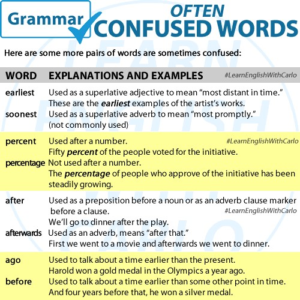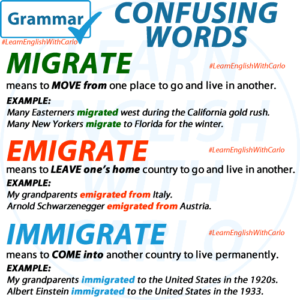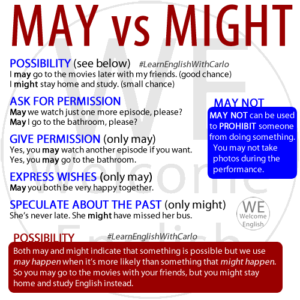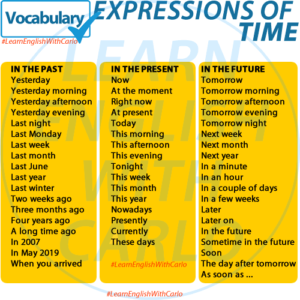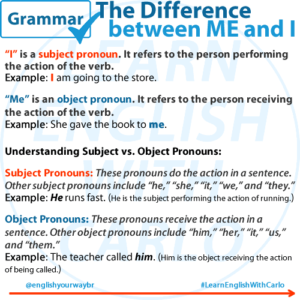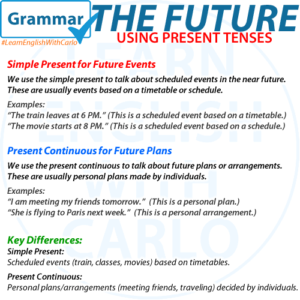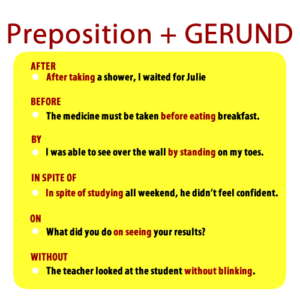Here are expanded explanation with examples for each pair: EARLIEST vs. SOONEST PERCENT vs. PERCENTAGE AFTER vs. AFTERWARDS AGO vs. BEFORE These explanations and examples highlight the subtle differences between these similar words and expressions in English.
Category: GRAMMAR
Permanent link to this article: https://englishyourway.com.br/grammar-more-confusing-words/
Permanent link to this article: https://englishyourway.com.br/grammar-migrate-vs-emigrate-vs-immigrate/
Oct 02
May vs. Might: Understanding the Difference
In English, both may and might are modal verbs used to indicate possibility. However, they aren’t interchangeable in all situations. Knowing when to use each one can improve the accuracy and clarity of your communication. May: A Stronger Possibility May is often used when something is more likely to happen. When we say something may …
Permanent link to this article: https://englishyourway.com.br/may-vs-might-difference/
Sep 25
PRONUNCIATION – the ED sound
PRONUNCIATION – the ED sound There are three different ways to pronounce the ‘ED’ ending of regular verbs in the simple past tense: / t/ , / d / or / id /. The pronunciation depends on the sound at the end of the infinitive of the main verb and whether it is voiced or …
Permanent link to this article: https://englishyourway.com.br/pronunciation-ed-sound/
Sep 05
VOCABULARY – Expressions of Time
Do you know how to use phrases like “in the morning,” “next week,” or “a long time ago”? Expressions of time help you give more details when you’re talking about when things happen. Days/Weeks/Months/Years: Use on for days (“on Monday”), in for months/years (“in July”, “in 2022”), and at for specific times (“at 5 o’clock”). …
Permanent link to this article: https://englishyourway.com.br/vocabulary-expressions-of-time/
Aug 29
TOO vs. ENOUGH
TOO: ENOUGH: Quick Tip: Here are examples for each of the patterns: TOO + Adjective TOO + Adverb TOO MANY + Noun (Countable) TOO MUCH + Noun (Uncountable) Adverb + ENOUGH Adjective + ENOUGH ENOUGH + Noun These examples should clarify how to use “too” and “enough” in different contexts!
Permanent link to this article: https://englishyourway.com.br/too-vs-enough-in-english/
Jul 29
The Difference Between “Me” and “I”
“I” is a subject pronoun. It refers to the person performing the action of the verb. “Me” is an object pronoun. It refers to the person receiving the action of the verb. Remember: When talking about yourself and another person, always put the other person first. The Difference Between “You and Me” vs. “You and …
Permanent link to this article: https://englishyourway.com.br/difference-between-you-and-me-vs-you-and-i/
Jul 08
Using Present Tenses to Talk About the Future
Did you know we can use the simple present and the present continuous tenses to talk about the future? Let’s dive into how we do this! Simple Present for Future Events When to use:We use the simple present to talk about scheduled events in the near future. These are usually events based on a timetable …
Permanent link to this article: https://englishyourway.com.br/using-present-tenses-to-talk-about-the-future/
Jul 04
GRAMMAR – Prepositions + GERUND
Understanding the correct use of prepositions with gerunds is crucial for mastering English grammar. This guide will help you navigate the common combinations, such as “interested in learning” and “good at cooking,” providing clear examples and practical exercises. Learning these patterns can enhance your writing and speaking skills, making your English more fluent and natural. …
Permanent link to this article: https://englishyourway.com.br/grammar-prepositions-with-gerunds/
Permanent link to this article: https://englishyourway.com.br/whats-the-difference-work-vs-job/

